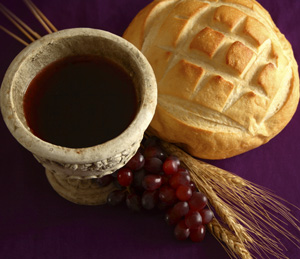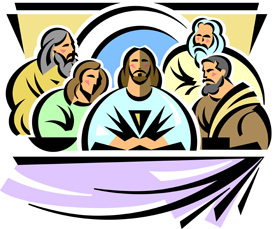How should we approach the Lord’s table every week? This seems like a very important question. We do not want to approach the Lord wrongly. Fortunately Scripture offers insight.
Consider, for example, when Isaiah was brought into the throne room
of God.
In the year that King Uzziah died, I saw the Lord seated on a throne, high and exalted, and the train of his robe filled the temple. Above him were seraphs, each with six wings: With two wings they covered their faces, with two wings they covered their feet, and with two they were flying. And they were calling to one another: “Holy, holy, holy is the Lord Almighty; the whole earth is full of His glory” (Isaiah 6:1-3).
Why do the seraphs have two wings to cover their faces? We assume they need the wings to shield themselves from the gaze and glory of God. In other words, the creatures whom God created to continuously minister to him, must have wings to shield or cover themselves from God’s presence.
And so we must consider at Communion, what will we use as a covering?
Scripture teaches there is only one covering sufficient to remove our sins from God’s presence: the blood of Jesus Christ. Ephesians 3:12 says, “In him [Christ] and through faith in him [Christ] we may approach God with freedom and confidence.”
The shed blood of Jesus Christ is central to Communion. To remember his shed blood is why we come to this table. Christ’s shed blood is also how we are able to come to this table. The Lord’s shed blood is both the reason and the means for what we do during Communion.
________________
Trevor Tolley is a high school teacher at Tree of Life Christian Schools in Columbus, Ohio, and serves as an elder at Worthington (Ohio) Christian Church.













